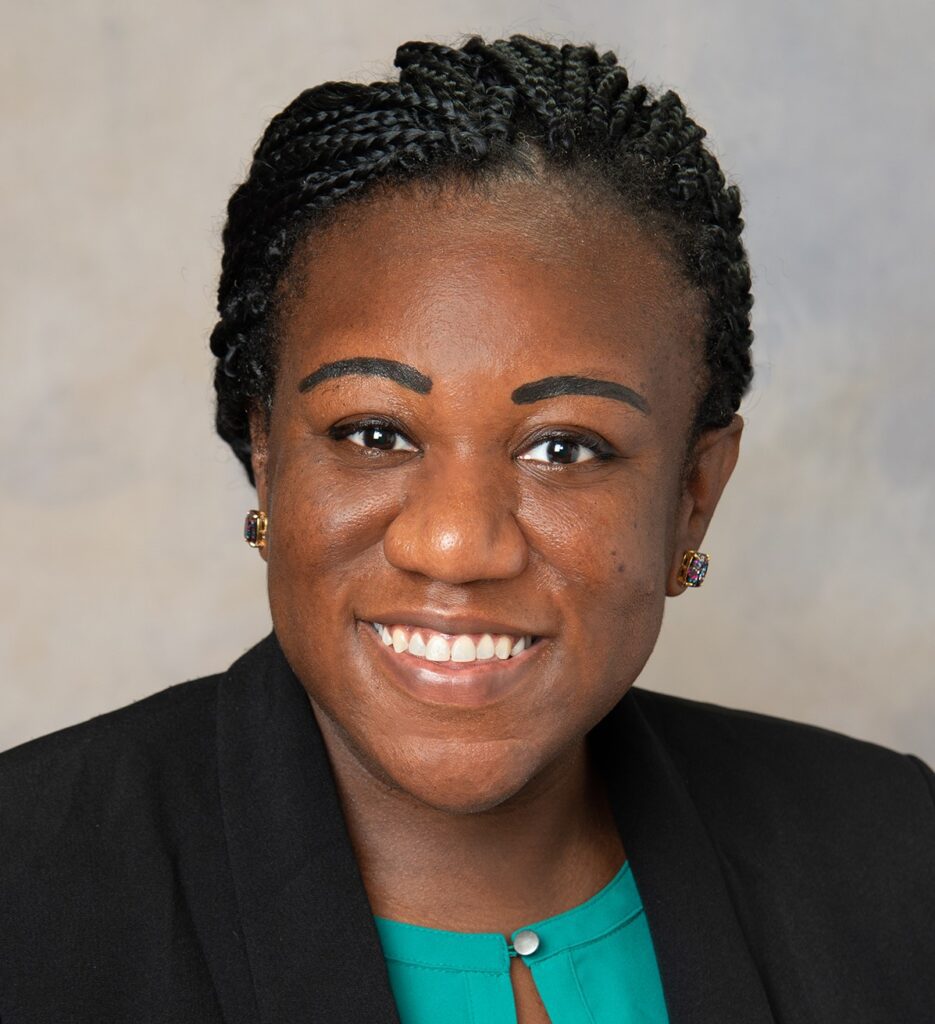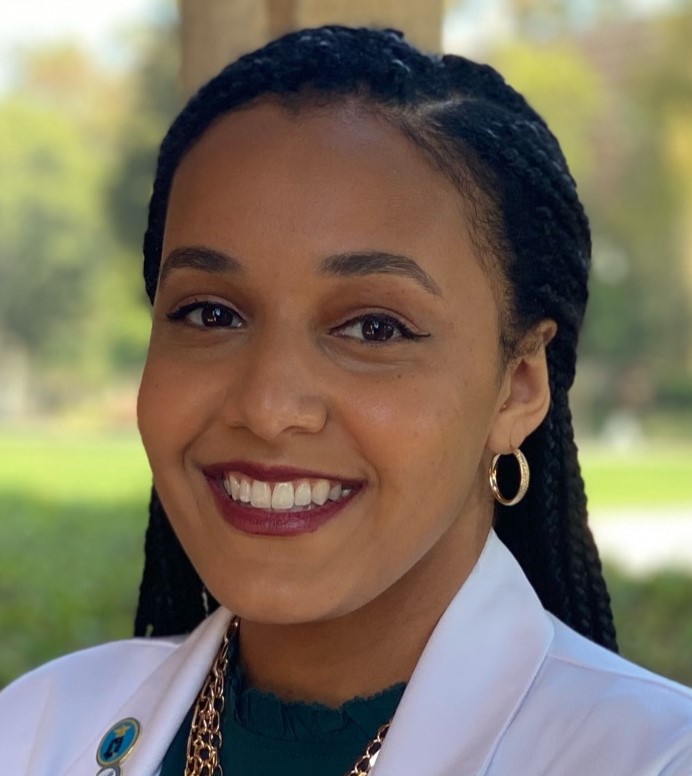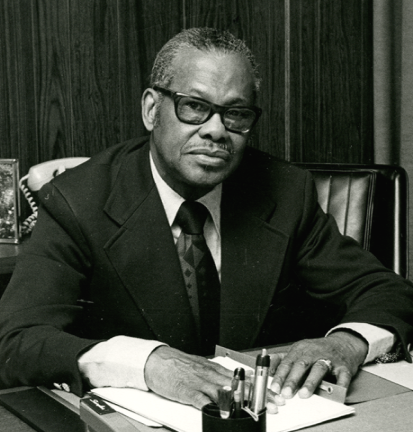Embracing the Past, Present, and Future:
Celebrating Black Excellence in Gastroenterology

by Dr. Corlan Eboh, Dr. Mazer Ally & Dr. Mohammad Ali; ACG Diversity, Equity, and Inclusion Committee

The American College of Gastroenterology celebrates Black History Month by recognizing Black professionals’ rich legacy and vibrant presence in gastroenterology. The celebration is an active recognition of ongoing contributions and a forward-thinking vision.
We will spotlight trailblazing individuals and organizations from the Black medical community weekly. These features are narratives of resilience, innovation, and unwavering dedication to medical excellence and patient care. We aim to showcase the diverse talents and perspectives that enrich our field.
As we honor the exceptional contributions of Black leaders, we also focus on the future; they are driving action and fostering continual growth in diversity and inclusion. The ACG strives to cultivate an inclusive environment for all gastroenterologists, where diverse voices are heard and essential to our collective progress.
This month is a time to celebrate our achievements and anticipate the ongoing work to ensure equity and representation in gastroenterology. We invite you to engage with our weekly features, find inspiration in these stories, and contribute to the dialogue on creating a more inclusive future in healthcare.
Join us in recognizing Black gastroenterologists’ remarkable contributions and embracing the ongoing effort to advance diversity, equity, and inclusion in our field.
Weekly Spotlight

Association of Black Gastroenterologists and Hepatologists
@blackingastro
blackingastro.org
This Black History Month, the American College of Gastroenterology proudly highlights the Association of Black Gastroenterologists and Hepatologists (ABGH). Since its inception in 2021, ABGH has been pivotal in addressing the significant healthcare disparities in GI and liver diseases that heavily impact Black communities. Through enhancing health outcomes, nurturing professional connections, and advancing the careers of Black specialists in the field, ABGH’s initiatives, including their insightful annual summit in Washington, DC, showcase their unwavering commitment to health equity and education. Their efforts are a beacon of progress and inspiration.
Discover more about their impactful work at: https://blackingastro.org/resources/
Explore their resources and event calendar for further information and engagement opportunities at: https://blackingastro.org/events/.

Melodie Narain-Blackwell
Founder, Color of Gastrointestinal Illnesses (COGI)
@colorofgi
Melodie Narain-Blackwell is a passionate health advocate, educator, mobilizer, and the founder of Color of Gastrointestinal Illnesses (COGI), formerly known as Color of Crohn’s & Chronic Illness, a nonprofit dedicated to health equity and BIPOC communities that are challenged with digestive diseases and chronic illnesses.

Black Men In White Coats
@teamBMWC
This week, the American College of Gastroenterology proudly spotlights the transformative work of Black Men in White Coats. Founded by Dr. Dale Okorodudu, this organization confronts the stark underrepresentation of Black men in medicine by offering mentorship, youth summits, and health disparity education. Through innovative eMentoring, Black Men in White Coats empowers aspiring physicians from underserved communities, guiding them to success in medical careers. With African Americans making up only 5% of the physician workforce and Black men just 2.7%, despite being 13% of the American population, their work is crucial in inspiring and guiding the next generation of medical professionals. The ACG applauds their efforts in making the medical profession more inclusive and diverse, genuinely inspiring the next generation of healthcare leaders. To learn more about their impactful mission, please visit their website at blackmeninwhitecoats.org.

Chiazotam “Zo” Ekekezie, MD
Clinical Assistant Professor of Medicine
Stanford University
This Black History Month, the American College of Gastroenterology is honored to spotlight Dr. Chiazotam Ekekezie for her impact and leadership in gastroenterology. Throughout her career, Dr. Ekekezie’s scholarship and service have centered the advancement of our field by focusing on medical education and inclusion. Her leadership roles, notably as Stanford’s Associate Program Director for the GI fellowship program, steering member for Stanford’s Leadership Education in Advancing Diversity Program, and former chair of professional development for the Office of Diversity in medical education underscore her efforts to cultivate a more inclusive medical community.
Dr. Ekekezie embodies the essence of Black History Month: resilience, innovation, and a dedication to equity, thus inspiring future generations to pursue excellence and compassionate care. Celebrating Dr. Ekekezie, we acknowledge the potential and celebrate the collective strides and contributions of Blacks in our field.
Cultivating a Diverse Pipeline in Gastroenterology
ACG Institute Leadership Training Program Participants

Iman Boston, MD, MBA
Emerging Leaders Program

Philip Oppong-Twene, MD, MPH
Emerging Leaders Program

Ngozi Enwerem, MD, MPH
Early Career Leadership Program

Jennifer Ray, MD
Early Career Leadership Program

Bethlehem Michael, David Geffen School of Medicine

Cynthia Okafor, University of Texas Medical Branch
Educational Resources

ACG Racism in Medicine Webinar Series
- Shifting Culture and Practice
Dr. Maria Oliva-Hemker, Brooke Abbott, Dr. Darwin Conwell, Dr. Sophie Balzora, Dr. Darrell Gray & Dr. Mark Pochapin - The Journey to Health Equity in GI
Dr. Aiya Aboubakr, Dr. Samuel Akinyeye, Dr. Chino S. Aneke-Nash & Dr. Florence Odufalu - Identifying and Eliminating Racism in Science and Healthcare: Historical Perspective and Current Opportunities
Dr. Darrell Gray

Health Equity & DEI Module on the ACG Education Universe
ACG’s Health Equity & DEI Module features a comprehensive educational program dedicated to providing updates on diversity, equity and inclusion topics. The modules include content specifically designed to allow the learner to increase knowledge and develop strategies that can be implemented into practice.
Special Announcement: Leonidas Berry Health Equity Research Award

The ACG Institute is proud to announce that the Health Equity Research Award is now re-named in honor of the life and legacy of Leonidas H. Berry, MD, MACG. The College and the ACG Institute recognize his contributions to gastroenterology, and tireless efforts to end discrimination in medicine and medical schools. Dr. Berry was a pioneering gastroenterologist, inventor of the Eder-Berry biopsy attachment for the Eder gastroscope, and President of the National Medical Association from 1965 to 1966, among many career distinctions. He joined the College in 1946 and was ACG’s first African American member. ACG bestowed its inaugural Clinical Achievement Award to Dr. Berry in 1987.
Tips for Applying for the Leonidas Berry Health Equity Research Award
This two-year award, with funding of up to $75,000 (50k year-one, 25k year-two based on progress), supports actionable science that will translate to reducing health and/or healthcare disparities.
Applications for ACG Institute Research Awards, including the Leonidas Berry Health Equity Research Award, will open this fall. Look for more information this summer or read last year’s grant announcement.
Further Resources

Intersociety Group on Diversity (IGD) – The purpose of the IGD is to advise, assist and support the sponsoring societies (AASLD, ACG, AGA, ASGE and NASPGHAN) in furtherance of their collective objectives on diversity, equity and inclusion. The IGD aims to increase diversity in gastroenterology among our societies’ members, our pipeline of trainees, and leadership; and eradicate health disparities in the patients and populations our members serve. Leadership of the IGD rotates among the GI societies and the current IGD chair is Dennis Spencer, MD, PhD (NASPGHAN).
In 2022, the IGD developed a digital guide highlighting the five GI societies’ individual DEI initiatives, research opportunities, pipeline development programs, education, and awards in a helpful at-a-glance format with links to learn more.

The Association of Black Gastroenterologists and Hepatologists (ABGH) – blackingastro.org ABGH exists to promote health equity in Black communities, advance science and develop the careers of Black gastroenterologists, hepatologists, and scientists.

